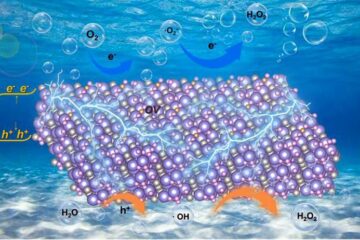Scientists from the CIMA from the University of Navarra investigate a molecule for diagnosing hypertensive cardiopathy

After studying the relationship of this molecule with this disease, the experts believe that cardiotrophin 1 is useful for preventing or controlling the damaging effects on the heart suffered by patients with this disease. In Spain, there are four million patients with this illness, a number that supposes fifty percent of the eight million patients with high blood pressure.
The research on this cardiovascular illness was shared today during the course of the International Congress Frontiers in Transnational Research of Cardiovascular Diseases, held in the CIMA, and in which dozens of Spanish, Germans, British and Dutch scientists participated.
Currently, these types of illnesses are the number one cause of doctor’s visits, hospitalization and death worldwide. As it is foreseen that their frequency will increase in the next decades, experts propose the soonest possible application of the latest biomedical and biotechnological advances for the diagnosis, prevention and treatment of these pathologies.
Stroke and Atrial Fibrillation Prevention
Cardiotrophin 1 as it intervenes in the earliest phases of hypertensive cardiopathy, if we act on it we can prevent complications such as cardiac insufficiency, atrial fibrillation, strokes and even patient death.
The speakers also touched on aspects of high blood pressure, which affects more than 25% of the adult population. For example, they revised the advances in the diagnosis and treatment of lesions that this pathology produces in the heart, the brain and the kidneys, saying that is one of the primary causes of problems such as cardiac insufficiency, vascular dementia and kidney failure.
In addition, they studied the harmful impact of diabetes and obesity on the heart and the arteries. In this sense, they presented pharmaceutical advances that can lead to a revolution in the current therapy used. Finally, they spoke of atherosclerosis (arterial hardening), the most common illness and with the worst consequences. They also analyzed the use of biomarkers for early detection of future strokes (whether cerebral or heart attacks) and cellular therapy in order to minimize its consequences.
Media Contact
All latest news from the category: Health and Medicine
This subject area encompasses research and studies in the field of human medicine.
Among the wide-ranging list of topics covered here are anesthesiology, anatomy, surgery, human genetics, hygiene and environmental medicine, internal medicine, neurology, pharmacology, physiology, urology and dental medicine.
Newest articles

New SPECT/CT technique shows impressive biomarker identification
…offers increased access for prostate cancer patients. A novel SPECT/CT acquisition method can accurately detect radiopharmaceutical biodistribution in a convenient manner for prostate cancer patients, opening the door for more…

How 3D printers can give robots a soft touch
Soft skin coverings and touch sensors have emerged as a promising feature for robots that are both safer and more intuitive for human interaction, but they are expensive and difficult…

Oxygen vacancies mediated ultrathin Bi4O5Br2 nanosheets
… as efficient piezocatalyst for synthesis of H2O2 from pure water. As an important chemical raw material, hydrogen peroxide (H2O2) is widely applied in various aspects of industry and life….





















